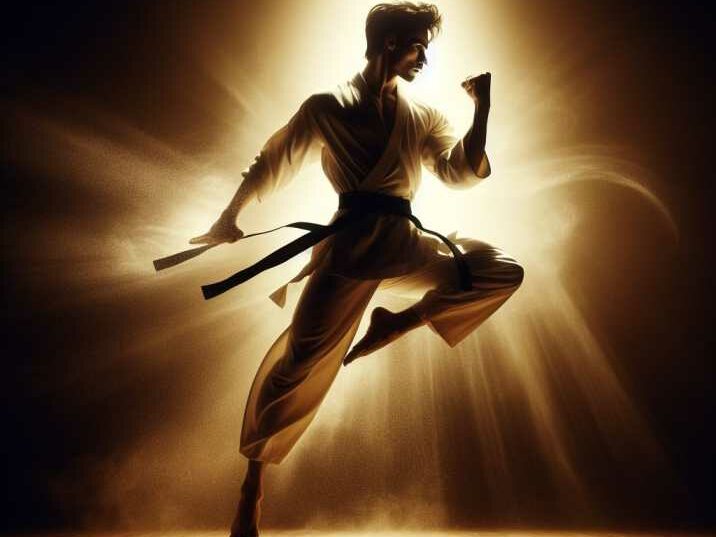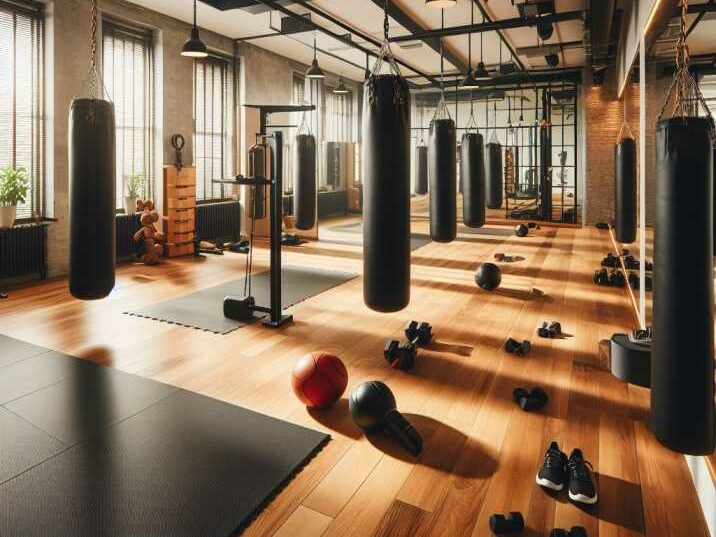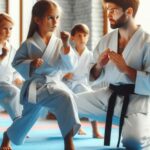Introduction:
Table of Contents
Are you intrigued by the world of martial arts but unsure if you can learn it without a formal instructor? Many individuals ponder over the possibility of mastering martial arts on their own, and the answer might surprise you. While traditional martial arts training often involves a sensei or instructor guiding your journey, learning solo is indeed feasible with dedication, discipline, and the right approach. In this beginner’s guide, we’ll explore the possibilities of solo practice of martial arts, providing you with valuable insights, techniques, and tips to kickstart your journey.

Table of Contents:
- Understanding Martial Arts
- What is Martial Arts?
- Benefits of Practicing Martial Arts
- Can You Learn Martial Arts Alone?
- Pros and Cons of Solo Practice
- Factors to Consider
- Essential Techniques for Solo Practice
- Basics of Martial Arts Forms
- Conditioning and Fitness
- Equipment for Solo Practice
- Tips for Effective Solo Training
- Establishing a Routine
- Setting Goals and Tracking Progress
- Seeking Feedback and Resources
- Staying Motivated and Safe
- Mental Preparation and Focus
- Injury Prevention and Self-Care
- FAQs about Learning Martial Arts Alone
- Frequently Asked Questions and Answers
Understanding Martial Arts:
What is Martial Arts?
Martial arts encompass a diverse range of combat practices originating from various cultures around the world. From ancient disciplines like karate and kung fu to modern forms like mixed martial arts (MMA), martial arts emphasize physical prowess, mental discipline, and self-defense techniques.
Benefits of Practicing Martial Arts:
- Physical Fitness: Martial arts training improves strength, flexibility, agility, and cardiovascular health.
- Self-Defense Skills: Learning martial arts equips you with practical techniques to protect yourself in threatening situations.
- Mental Discipline: Martial arts instill discipline, focus, and self-control, fostering mental resilience and clarity.
- Confidence Boost: Progressing in martial arts builds confidence and self-esteem, empowering individuals both on and off the mat.
Can You Do Solo Practice of Martial Arts?
Pros and Cons of Solo Practice:
Learning martial arts solo offers flexibility and autonomy, allowing individuals to tailor their training to their schedule and preferences. However, it lacks the immediate feedback and guidance provided by an experienced instructor, which can hinder progress and increase the risk of developing bad habits.
Factors to Consider:
- Self-Discipline: Solo practitioners must possess a high level of self-discipline to stay motivated and consistent in their training.
- Resource Availability: Access to instructional videos, books, and online resources can supplement solo practice and enhance learning.
- Safety Precautions: Practicing martial arts alone requires careful attention to safety measures to prevent injuries.
Essential Techniques for Solo Practice:
Basics of Martial Arts Forms:
Begin by mastering fundamental techniques such as stances, punches, kicks, and blocks. Practice these movements slowly and deliberately to ensure proper form and technique.
Conditioning and Fitness:
Incorporate strength training, cardio exercises, and flexibility drills into your routine to improve overall fitness and enhance martial arts performance.
Equipment for Solo Practice:
Invest in essential gear such as a punching bag, training dummy, and protective gear to simulate realistic training scenarios and minimize the risk of injury.

Tips for Effective Solo Training:
Establishing a Routine:
Create a structured training schedule that incorporates warm-up exercises, technique drills, and cooldown stretches to optimize your progress and prevent burnout.
Setting Goals and Tracking Progress:
Set achievable short-term and long-term goals to stay motivated and measure your improvement over time. Keep a training journal to track your sessions and reflect on your strengths and areas for improvement.
Seeking Feedback and Resources:
Utilize online forums, instructional videos, and virtual coaching sessions to receive feedback and guidance from experienced practitioners and instructors.
Staying Motivated and Safe:
Mental Preparation and Focus:
Develop mental resilience and focus through meditation, visualization techniques, and mindfulness practices to enhance your performance and maintain composure during training.
Injury Prevention and Self-Care:
Prioritize injury prevention by warming up properly, using proper technique, and listening to your body’s cues. Incorporate rest days and recovery strategies such as stretching and foam rolling to prevent overtraining and promote longevity in your martial arts journey.
Conclusion:
Learning martial arts on your own is a challenging yet rewarding journey that requires dedication, discipline, and perseverance. By understanding the fundamentals, practicing essential techniques, and staying motivated, you can embark on a fulfilling martial arts journey independently. Remember to prioritize safety, seek guidance from resources, and celebrate your progress along the way. With determination and commitment, you can achieve proficiency and mastery in martial arts, empowering yourself both physically and mentally.
FAQs about Learning Martial Arts Alone:
- Can I learn martial arts at home without a teacher?
- Yes, with dedication and the right resources, you can learn martial arts independently.
- What are some essential equipment for solo martial arts practice?
- Essential equipment includes a punching bag, training dummy, protective gear, and mats for safety.
- How can I stay motivated while practicing martial arts alone?
- Setting goals, tracking progress, and seeking feedback can help maintain motivation and accountability.
- Is it safe to practice martial arts alone?
- Practicing solo requires careful attention to safety precautions and proper technique to minimize the risk of injury.
- Can I progress in martial arts without a formal belt system or grading system?
- Progress in martial arts is not solely determined by belt rankings. Focus on personal growth, skill development, and mastery of techniques.


